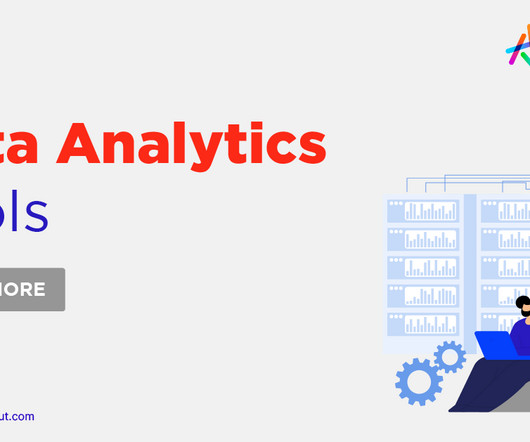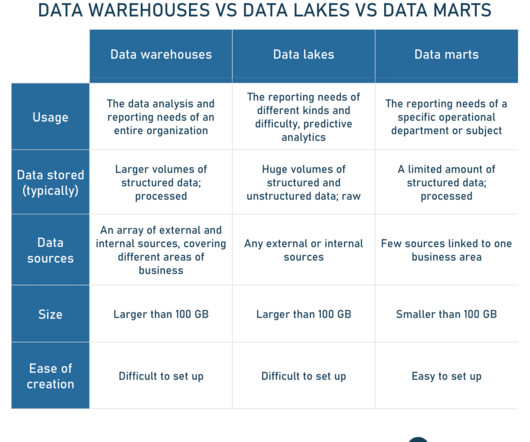Data Engineering Glossary
Silectis
JANUARY 3, 2021
BI (Business Intelligence) Strategies and systems used by enterprises to conduct data analysis and make pertinent business decisions. Big Data Large volumes of structured or unstructured data. Big Query Google’s cloud data warehouse. Data Visualization Graphic representation of a set or sets of data.














Let's personalize your content